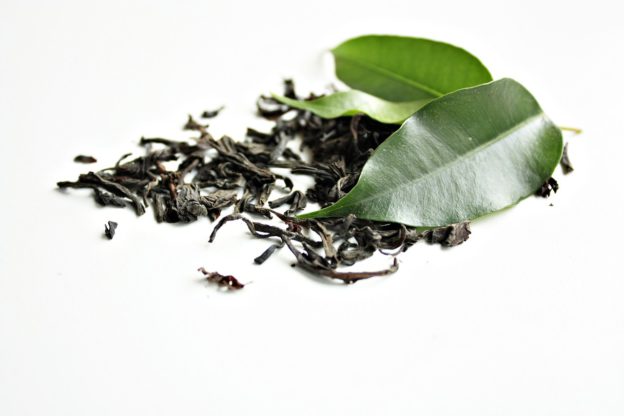Green tea is often thought of as one of the healthiest drinks in the world. People associate it with weight loss and loads of potential health benefits. It offer’s a smaller dose of caffeine than a typical cup of coffee, has a unique flavor and aroma and can be used in recipes. What is not to like right? There may be even more to like about green tea than you realize, but is it healthy for everyone? Who should avoid green tea? Keep reading to find out more about this beverage and whether it’s right for you.
What is green tea?
Green tea is tea made from the unfermented leaves of Camellia Sinensis, which is also sometimes referred to as “tea plant”, “tea shrub”, and “tea tree.” It has a pale green color and a slightly bitter, earthy flavor. Green tea originated in China but is now produced in other countries in East Asia as well. Contrary to popular belief, green tea is not a herbal tea.

Matcha green tea
Matcha is a much more powerful form of green tea that is stone ground into a bright green powder. It comes from the same plant but is grown and prepared very differently than green tea. Many believe that since you consume the whole leaf, matcha may offer even more health benefits than regular green tea. It is likely higher in antioxidants, but remember that it also contains more caffeine as well.
Health benefits of green tea
Because green tea is rich in polyphenols, a health promoting macronutrient that can reduce inflammation, it may be very beneficial for those who suffer from fibromyalgia and arthritis. It may also improve bone density, lower blood pressure, reduce cholesterol levels, prevent type 2 diabetes, cardiovascular disease, improve memory and decrease the risk of dementia.
Because of the high antioxidant content in green tea, research suggests it may also help prevent cancer. A meta-analysis of studies for breast cancer risk and recurrence published between 1998 and 2009, encompassing 5,617 cases of breast cancer observed that increased green tea consumption may be inversely associated with risk of breast cancer recurrence in women.
Green tea for weight loss
Ever wonder why green tea is often listed on the ingredients list of many over the counter, weight loss supplements? Some studies suggest that green tea can boost metabolic rate and increase fat burning, especially in the abdominal area. However, not all studies agree, and many of these benefits can also be attributed to the caffeine content in the tea.

Green tea in food
Tea is the most consumed beverage second only to water and green tea is an incredibly popular tea, especially in China and Japan. But green tea can also be use as an ingredient in food. There are many green tea recipes out there, like this amazing green tea cheesecake recipe I happened to find. Give it a try and experiment to see what works for you.
Possible side effects from green tea
Up until now I have discussed many of the health benefits of green tea, and it is usually safe for adults to consume. But there are some things to keep in mind. Because it contains tannins, for example, too much green tea has been known to upset the stomach. Drinking green tea with food however may help prevent this problem from occurring.
Remember those polyphenols I mentioned earlier? Yes, they are healthy, but they also bind to the iron in your body making it less available. Adding vitamin C, such as a few drops of lemon juice, may help prevent this. However, it is still not recommended for those who suffer from iron deficiency and anemia.
Green tea also contains caffeine, and although it is less than a cup of coffee, it may have a negative effect on certain individuals, especially when consumed in excess. Caffeine can aggravate or cause irregular heartbeat, accelerate heart rate, aggravate or cause headaches, and may also contribute to insomnia, anxiety and diarrhea.
Green tea and pregnancy

The caffeine as well as the catechins, and tannic acids found in green tea are substances that have been linked to pregnancy risks, including miscarriage. If you are pregnant or breastfeeding, most health providers recommend no more than 2 cups (200 mg) per day. Remember this amount should be decreased if consuming other beverages or foods containing caffeine. Caffeine also passes into breast milk and can affect a nursing infant.
Conclusion
Keep in mind that moderate consumption of green tea for adults is generally regarded as safe and you shouldn’t feel that you have to give up your favorite tea as long as you are aware of the possible risks and side effects. Green tea consumption is still associated with many health benefits, but as with many other things, moderation is usually key. Talk to your doctor and find out what he or she suggests for you. I hope you liked this article and don’t forget to comment below. Take care!
